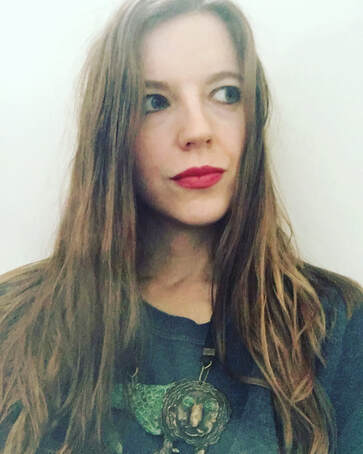
I was born in Russia (back then, still the Soviet Union), in the city of St. Petersburg (Leningrad). I don't remember wanting to be anybody specific when I grow up. But I do recall reading a lot, dreaming strange dreams and being lonely. It was not a bad feeling. I was just waiting to discover myself. I wrote poems (in Russian) and enjoyed learning languages.
According to my calculations, I studied for twenty three years. First, eleven years of school. Then, five years at St. Petersburg State University, majoring in humanities and social sciences. The official title of the program was "Culturology" but it turned out to be a combination of philosophy, sociology, anthropology, history, linguistics and psychology. Then, there were three more years in a "candidate of sciences" program (same field) - a Russian equivalent of a PhD degree.
At that point, there was a gap in my studies, because I really did not know what to do next. In the university, I was taught to wonder about the human nature, society and culture. Theories I learned were intriguing, but I was not sure how to put them together or apply to my own life. Then, just like that, I decided to go to the United States and get another PhD degree (ok, ok, it's actually a long story). Due to a combination of circumstances, I chose the field of communication and media studies, and this decision turned out to be serendipitous. That's how I ended up at Temple University, Philadelphia, where I studied for four more years in the program called Media and Communication.
When I came to the US, I thought I was going to study how dubbing of American TV shows and films in Russia influences the perception of the American culture among Russian audiences (I even wrote a paper on this topic, but it never got to be published in a journal). I soon discovered media literacy education thanks to Yonty Friesem and Renee Hobbs, and it became my main focus for a few years. More specifically, I wanted to explore how media representations of gender and sexuality can be taught more effectively.
At that point, I realized that all the theories I learned back in Russia were still on my mind, and that I wanted to write something that would help me arrange different ideas about the human communication. I wanted to combine my interest in media and the insights about society's imperfections that I gained from critical cultural studies with my passion for empathy. That is how, in the beginning of 2016, I started to write my first book: Media is us: Understanding communication and moving beyond blame. This book was published in June 2021 by Rowman and Littlefield.
When the book was published in 2021, I was teaching part-time in Chicago colleges, serving as a co-editor for the Journal of Media Literacy Education and parenting my two sons Robin and Sky (5 and 3 back then) together with my husband. I was also looking for a new career. Two things became clear: academic establishment was not for me, but I also wanted to keep writing and doing research, my way.
According to my calculations, I studied for twenty three years. First, eleven years of school. Then, five years at St. Petersburg State University, majoring in humanities and social sciences. The official title of the program was "Culturology" but it turned out to be a combination of philosophy, sociology, anthropology, history, linguistics and psychology. Then, there were three more years in a "candidate of sciences" program (same field) - a Russian equivalent of a PhD degree.
At that point, there was a gap in my studies, because I really did not know what to do next. In the university, I was taught to wonder about the human nature, society and culture. Theories I learned were intriguing, but I was not sure how to put them together or apply to my own life. Then, just like that, I decided to go to the United States and get another PhD degree (ok, ok, it's actually a long story). Due to a combination of circumstances, I chose the field of communication and media studies, and this decision turned out to be serendipitous. That's how I ended up at Temple University, Philadelphia, where I studied for four more years in the program called Media and Communication.
When I came to the US, I thought I was going to study how dubbing of American TV shows and films in Russia influences the perception of the American culture among Russian audiences (I even wrote a paper on this topic, but it never got to be published in a journal). I soon discovered media literacy education thanks to Yonty Friesem and Renee Hobbs, and it became my main focus for a few years. More specifically, I wanted to explore how media representations of gender and sexuality can be taught more effectively.
At that point, I realized that all the theories I learned back in Russia were still on my mind, and that I wanted to write something that would help me arrange different ideas about the human communication. I wanted to combine my interest in media and the insights about society's imperfections that I gained from critical cultural studies with my passion for empathy. That is how, in the beginning of 2016, I started to write my first book: Media is us: Understanding communication and moving beyond blame. This book was published in June 2021 by Rowman and Littlefield.
When the book was published in 2021, I was teaching part-time in Chicago colleges, serving as a co-editor for the Journal of Media Literacy Education and parenting my two sons Robin and Sky (5 and 3 back then) together with my husband. I was also looking for a new career. Two things became clear: academic establishment was not for me, but I also wanted to keep writing and doing research, my way.